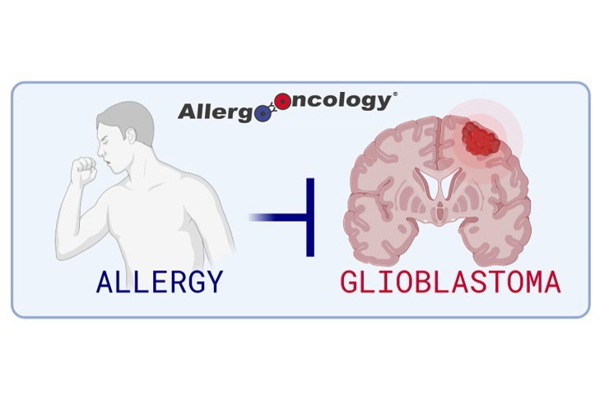 Credit: LIH
Credit: LIH
Researchers from the Luxembourg Institute of Health (LIH) has published their findings that allergic immune responses in mice implanted with brain tumour cells can prevent their growth and progression, confirming epidemiological links found in patients.
Despite the range of cancer treatments, including surgical intervention, radiation and chemotherapy, Glioblastoma (GBM), a highly aggressive type of cancer that occurs in the brain, remains incurable. While other cancers such as melanoma and certain types of lung cancers respond well to immunotherapy, GBMs are highly resistant.
At LIH, researchers first established an allergy induced mouse model implanted with GBM cells, reflecting the human situation and confirming the observations seen in the aforementioned patient studies. “Our work provides a preclinical model that mimics the long-term observations made in humans that allergies confer protection over GBM progression as well as evidence that allergic inflammation makes anti-tumoural immunity in the brain more potent and limits GBM-induced immune suppression” explained Dr Aurélie Poli of the Neuro-Immunology group, lead author of the study.
The LIH mouse model demonstrates that allergies cause the brain’s immune cells, known as microglia, to reprogramme themselves into a more aggressive inflammatory state, combating the implanted GBM cells and preventing their growth. Further analysis of the genetic profile of these cells has also led to the identification of an allergy-related gene signature associated with an improved prognosis in GBM patients. Not only that, the allergy induced mice also exhibited an increase in tumour infiltrating T- cells, the frontline soldiers of the immune system. Consequently, mice that weren’t induced with allergies had none of these benefits and their survival in response to the implanted brain tumours was noticeably reduced. “This study highlights the critical relationship between allergies and brain tumours and is the basis for further examinations into protective immunity against GBM” according to Prof Markus Ollert, one of the senior co-authors of the study.
“Our findings will help pave the way towards the advancement of new therapies targeting microglia and their ability to mobilise the immune system against GBM” added Dr Simone Niclou, the other senior co-author.
The study co-led by the Neuro-Immunology group, the Allergy and Clinical Immunology group, and the NORLUX Neuro-Oncology Laboratory at LIH, was funded by Action Lions “Vaincre le Cancer” and FNRS- Télévie. The research article was first published in the European Journal of Allergy and Clinical Immunology on 9 October 2022 and is available online via: https://onlinelibrary.wiley.com/doi/10.1111/all.15545.








